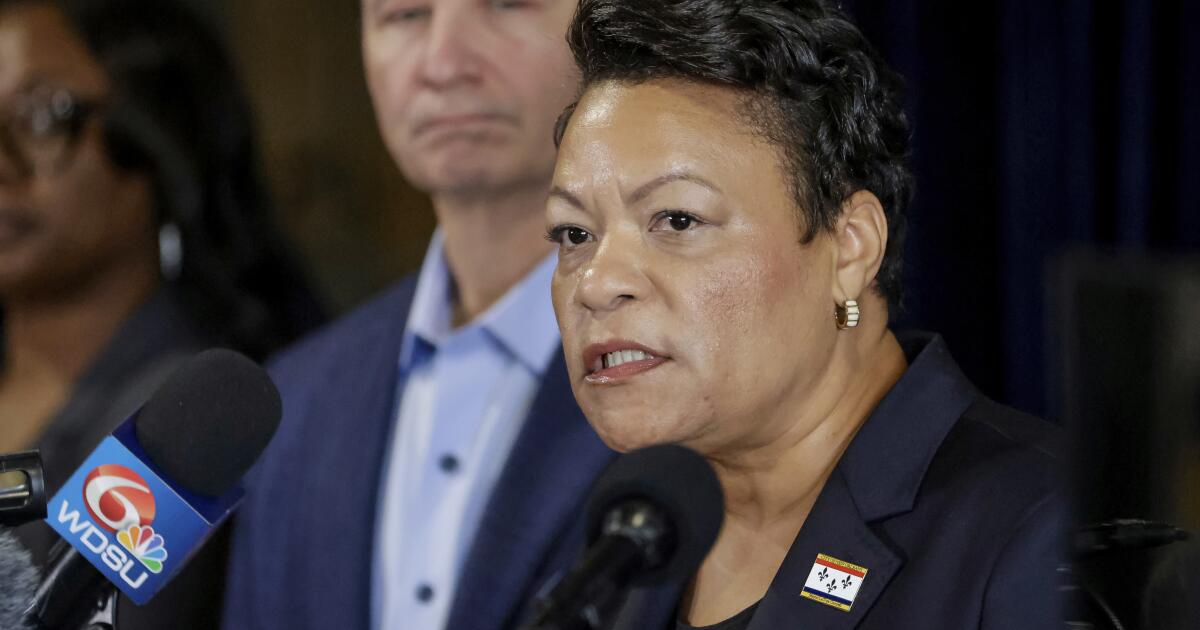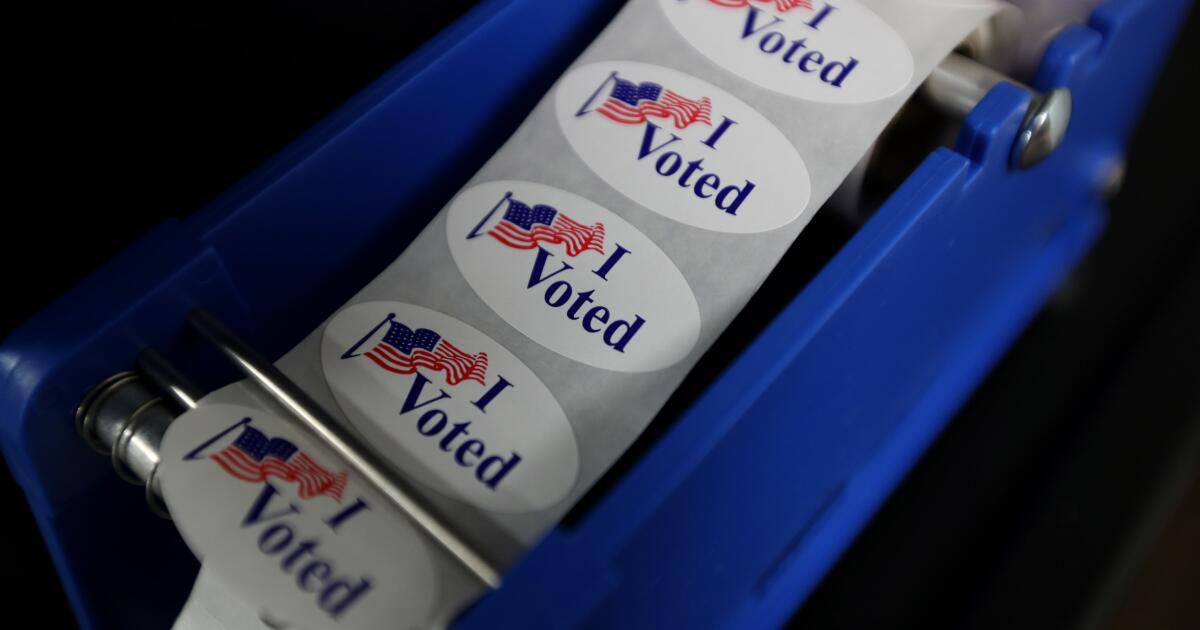New Orleans Mayor LaToya Cantrell has been indicted. What comes next?
Mayor LaToya Cantrell made history — becoming the first New Orleans mayor to be indicted while in office — after federal prosecutors on Friday charged her with multiple counts of wire fraud, obstruction of justice and lying to a grand jury.
The 11 counts specific to Cantrell stem from an investigation into her alleged affair with former New Orleans Police Department Officer Jeffrey Vappie, who worked on Cantrell’s security detail prior to his retirement from the force and has also been federally indicted.
The U.S. attorney’s office alleges, in a 48-page indictment, that Cantrell and Vappie illegally used city funds to travel around the country together, falsely claiming that the expenditures were related to city business, then conspired to cover it up. Federal investigators combed through 15,000 text messages sent between the two — and later deleted by Cantrell, according to the indictment — in which they discussed their relationship and travel plans.
What comes next?
With no political precedent to turn to in order to understand how the following months will play out, legal and governmental experts in New Orleans have relied on the rules set out in New Orleans’ Home Charter and similar incidents from other cities to inform predictions for the future.
“I don’t expect this as a legal matter to have any effect on her ability to be mayor of the city of New Orleans,” said attorney and Loyola College of Law professor Dane Ciolino. “Now, as a practical and political matter, that’s another issue.”
Ciolino added that when Cantrell appears in court for an initial hearing and arraignment — which is now scheduled for Sept. 10 — it is likely there will be restrictions placed on her movement as a condition of release, meaning that she will need to consult with a judge before engaging in any international travel, or perhaps even travel outside of the Eastern District of Louisiana.
“It won’t be any impairment to her doing her job,” he said. “She’ll just have to seek permission, which would be, I suspect, liberally granted to her.”
An in-office conviction would force Cantrell out
Although it may be unlikely that Cantrell will go to trial before her second term as mayor ends in January, she would be forced to step down if she were convicted of a felony.
Under state law, public officials must be removed from office if they are convicted of a federal or state felony. Under the city charter, if Cantrell were to plead guilty or chose not to contest the charges, she would face immediate removal.
If a mayor pleads not guilty and is convicted after a trial, the city charter calls for an automatic, unpaid suspension until the conviction is finalized through the appeals process, at which time she would be removed. If Cantrell were suspended but later made a successful appeal to overturn the conviction, she would receive back pay.
What happens after a mayor is removed from office?
The charter also states that if a mayor is removed or resigns with less than a year left in the term, the City Council must elect one of the two at-large council members to fill the seat, in lieu of a special election. Helena Moreno and JP Morrell are currently the two at-large City Council members, with Morrell currently serving as council president.
Morrell is running for a second term in his seat. Moreno, meanwhile, is actively running her own mayoral campaign and is thus far the front-runner in the race to succeed Cantrell. (The New Orleans municipal election will be held on Oct. 11, with a runoff — should it be necessary — set for Nov. 15.)
Moreno’s office put out a public statement the day that the charges were announced, saying that the mayor is entitled to the presumption of innocence and “a vigorous defense.”
Moreno’s statement mirrored many of her colleagues — neutral on the subject matter involved in the charges, choosing instead to reframe and discuss how to best serve the city. Although Cantrell’s relationship with the City Council has been rocky throughout her second term, there have been no public calls from members of the City Council for her to resign.
“The announcement today reminds us of the need to let the justice system work in a fair, timely fashion and without regard to politics or preference,” Councilmember Oliver Thomas, who is also running for mayor, wrote in a statement. “These are critical times for our city to get back on track and to stay focused on building a city that works and thrives for everyone.”
Councilmember Eugene Green released a statement similar in content, adding that it was a difficult day for New Orleans.
“My focus will continue to be on moving New Orleans forward — ensuring the safety of our citizens, strengthening our neighborhoods, and meeting the needs of my constituents,” Green wrote.
No indication of stepping down
A similar saga unfolded in Nashville, Tenn., in 2018 when then-Mayor Megan Barry — who, like Cantrell, was the city’s first female mayor — had an affair with a city-employed security officer who traveled with her on the city’s dime.
Barry pleaded guilty to a felony and resigned from office immediately after. Her political career was short-lived in the aftermath of the scandal as she mounted an unsuccessful run for Congress then pivoted to write a memoir.
Cantrell has not made any public statements since the indictment was announced by prosecutors. She skipped the launch of Amtrak’s new train service from New Orleans to Mobile, Ala., where she was slated to be a guest speaker on Saturday, but was back to work by Monday.
Cantrell’s communications team did not respond to Verite News requests for comment about whether her governance plans will change in response to the charges. Cantrell’s attorney, Eddie Castaing, declined to comment on the charges. A spokesperson for the mayor’s office said in a statement Monday that the mayor is focused on doing her job for the city of New Orleans.
Mediratta writes for Verite News, in partnership with the Associated Press.

